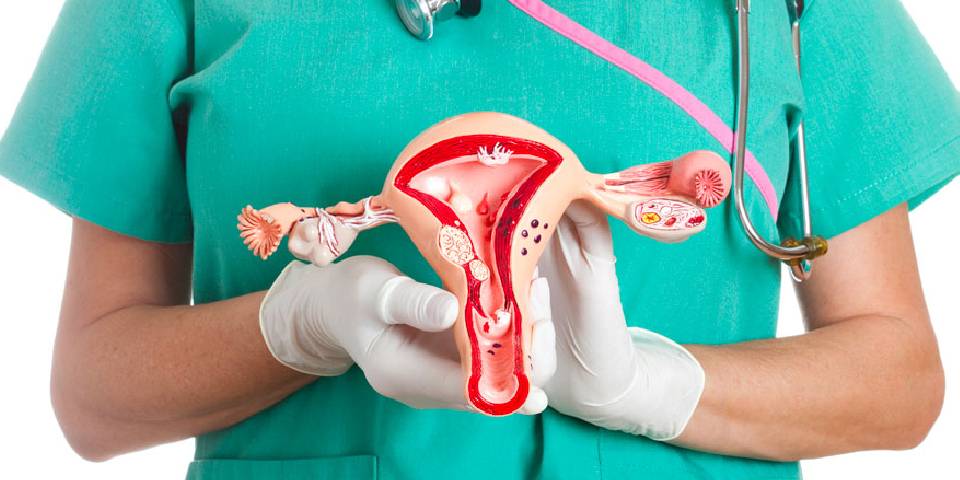Are you diagnosed with ovarian cancer? and looking for second opinion for cancer treatment? or looking best treatment for ovarian cancer treatment in Pune? then your search ends here
Dr. Manoj Dongare is one of the experienced cancer specialist in Pune having more than 15+ years of experience in cancer surgery and cancer treatment. Ovarian cancer is a complex disease that affects the ovaries, two small almond-shaped organs located on either side of the uterus. In India, ovarian cancer is the third most typical gynecological cancer, with a lopsidedly high mortality rate. According to the Indian Council of Medical Research (ICMR), it accounts for around 5-6% of all cancers among females. In this blog, Dr. Manoj Dongare Gynaecological Cancer Specialist explain all about the ovarian cancer, it’s symptoms and available treatment options. If you need any information or treatment for ovarian cancer then you can visit Dr Manoj Dongare at Cloverleaf Speciality hospital or Dr. D.Y. Patil Hospital and Research Center in Pune.
What is Ovarian Cancer?
Ovarian cancer originates in the ovaries, the small organs responsible for producing eggs and hormones such as estrogen and progesterone. The cancer can start in any part of the ovaries and may spread to other parts of the body. The most common types of ovarian cancer are epithelial ovarian cancer, which begins in the surface layer of the ovary, and germ cell tumors, which start in the cells that produce eggs.
What are the Symptoms of Ovarian Cancer?
Identifying the symptoms of Ovarian Cancer can save lives. Here are the signs to watch for:
- Abdominal Bloating: Constant swelling or discomfort in the abdominal area.
- Pelvic Pain: Pain or pain in the lower abdomen.
- Changes in Bowel Habits: Including regular urination or difficulty eating.
- Abnormal Vaginal Bleeding: Bleeding between periods or after menopause.
- Unexplained Weight Loss: Sudden and effective weight loss without an apparent cause.
If you experience any of these signs persistently, it is important to consult Dr. Manoj Dongare for evaluation.
What are the Risk Factors?
- Age
- Family History
- Genetics
- Hormone Replacement Therapy
- Reproductive Record
- Endometriosis
How to Diagnose Ovarian Cancer?
Dr. Manoj Dongare may suggest diagnosing ovarian cancer includes a mixture of methods:
- Pelvic Examination: An actual test to check for irregularities in the ovaries.
- Imaging Tests: Ultrasound, CT, or MRI scans to imagine the ovaries and see any masses.
- Blood Tests: The CA-125 blood test can measure levels of a protein that may be promoted in females with ovarian cancer.
- Biopsy: Removal of an example of ovarian tissue for testing under a microscope to confirm cancer diagnosis.
What are treatment options for Ovarian Cancer Treatment in Pune?
Ovarian cancer surgery is a crucial part of the treatment plan for most women diagnosed with ovarian cancer. The approach to surgery varies based on the stage of cancer, which determines how far the disease has spread and the extent of tissue removal needed. Surgery aims to remove the cancerous tissue, reducing the risk of recurrence and increasing the effectiveness of additional treatments like chemotherapy.
Early Stage Ovarian Cancer (Stage 0 or 1):
In the early stages, ovarian cancer is confined to the ovaries and has not spread to other areas of the body. Treatment at this stage focuses on removing the cancer while preserving as much of the healthy tissue as possible. The goal is to ensure no cancer remains, reducing the chance of recurrence. In some cases, women may opt for fertility-sparing surgery, where only the affected ovary and fallopian tube are removed if the cancer is very early (Stage 1A).
Post-Surgery Treatment: Depending on the findings, some women may not need further treatment, while others may receive chemotherapy to kill any remaining cancer cells.
Advanced Stage Ovarian Cancer (Stages 2, 3, and 4):
In advanced stages, ovarian cancer has spread beyond the ovaries to other parts of the pelvis, abdomen, or distant organs. Surgery at this stage is more extensive and focuses on removing as much of the cancer as possible (debulking surgery).
Post-Surgery Treatment: Chemotherapy is almost always required after surgery to target any remaining cancer cells. The aim is to reduce the tumor size as much as possible before starting chemotherapy.
Importance of Surgery in Ovarian Cancer (In Short):
Surgery is crucial for both early and advanced ovarian cancer:
- Accurate Staging: Surgery helps determine the cancer stage, guiding further treatment.
- Early-Stage (Stage 1): Surgery may cure early-stage ovarian cancer by removing affected organs.
- Advanced-Stage (Stages 2-4): Debulking surgery removes as much cancer as possible, improving chemotherapy effectiveness.
- Better Survival: Optimal debulking enhances survival by reducing tumor load before chemotherapy.
If you or someone you know is experiencing symptoms of ovarian cancer, do not hesitate, to contact a specialist like Dr. Manoj Dongare can make a necessary difference in the journey towards recovery. For more information or to schedule an appointment, please visit our website or call our clinic. Let us help you take the first step towards better health and a pain-free life.

